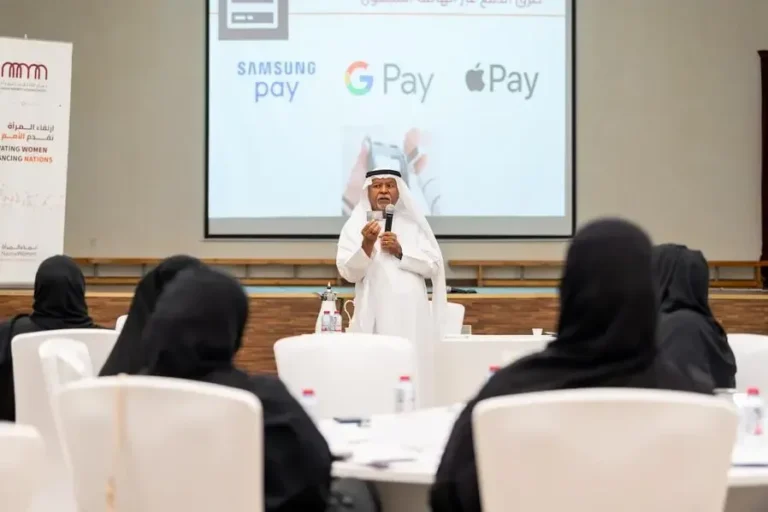Sharjah, As women in the UAE continue to rise as economic decision-makers, NAMA Women Advancement’s Financial Literacy Programme offers a practical model for how strengthening financial skills can further elevate their role in society.
When Mariam Al Naqbi, a mother from Al Madam in Sharjah, started teaching her children about saving during dinner, it was more than just a new routine. It reflected a deeper shift in how she viewed money, no longer just a source of stress, but a means to plan, learn, and even dream.
She was one of nearly 200 women across Sharjah who recently participated in the ‘Financial Literacy Programme’ organised by NAMA Women Advancement (NAMA). Participants in Sharjah city, Kalba, Dibba Al Hisn, and Al Madam engaged in practical training designed to demystify personal finance and provide effective strategies for saving, budgeting, and informed spending.
Building financial confidence
Led by financial consultant Salah Al Halyan, the programme moved beyond theory, and participants were encouraged to apply what they learned in real-life scenarios, from creating monthly budgets to assessing the risks and benefits of borrowing. The sessions focused on building financial confidence, particularly among women at the early stages of their professional or family journeys.
For Latifa Al Mulla from Kalba, the course offered something she had long needed: clarity. “I felt like I finally had a roadmap,” she said. “I used to feel overwhelmed by monthly expenses. Now I see where the money goes, and I feel in control.”
The programme also instilled the confidence needed to pursue entrepreneurial ambitions. One participant from Dibba Al Hisn, who had shelved her dream of starting a small home business, said the training gave her both the numbers and the mindset to move forward. “I always thought finance was too complicated for me. Now I know how to plan and start with what I have.”
Such outcomes reflect a broader philosophy that drives NAMA’s efforts, with the belief that true empowerment begins with understanding. The organization emphasises that financial literacy is not just a useful skill but is essential for long-term stability, security, and meaningful economic participation.
UAE benchmark for balance and equal opportunity
While the course was tailored to women’s personal experiences, its relevance extends to national priorities as well. According to the UAE Ministry of Finance, Emirati women account for 54.7 per cent of employees in the federal financial sector and hold 42.8 per cent of its leadership positions. In total, they represent more than three-quarters of the workforce in this field.
These figures point to a wider trend, the growing role of women in shaping the country’s financial future. Among Emirati youth, 78.12 per cent are female, underscoring the importance of early, sustained investment in their capabilities.
Under the leadership of Her Highness Sheikha Jawaher bint Mohammed Al Qasimi, Chairperson of NAMA, the organisation has prioritised financial education as a tool for personal growth and community resilience. Initiatives like the ‘Financial Literacy Programme’ are part of a broader push to equip women not only to participate in economic life, but to lead it.
For Mariam, Aisha, and their fellow participants, the programme’s impact is vividly clear. It’s reflected in newly drafted savings plans, and carefully managed household budgets that now guide their financial decisions. This shift to informed action and confidence empowers their financial journeys, actively shaping their futures.


